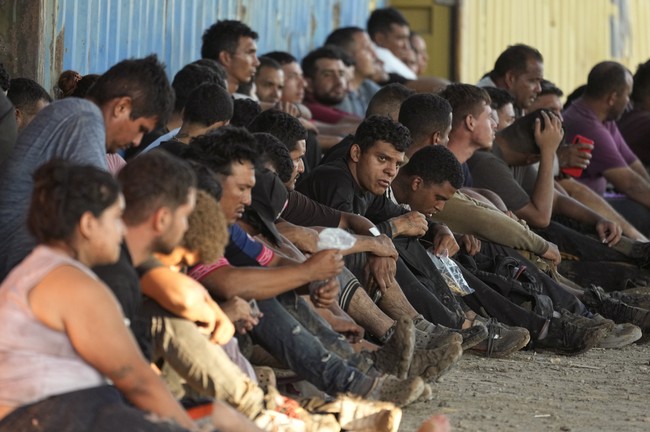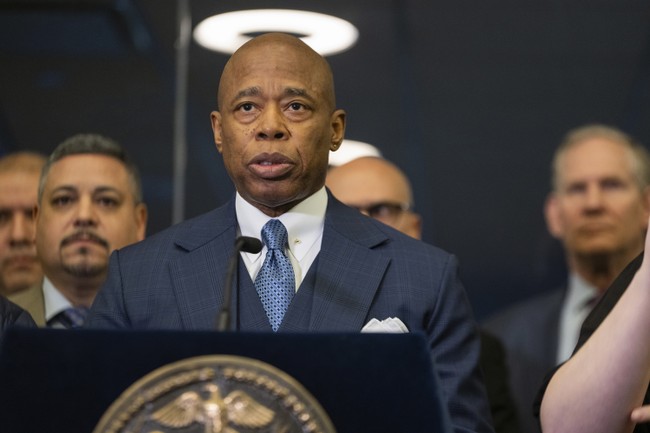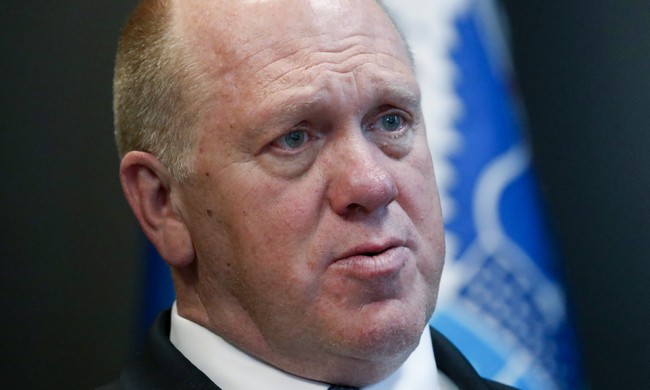Iran and US Tensions Unfold Amidst Sanctions and Threats
Amidst rising tensions with the United States, Iran's leadership voices strong positions on military preparedness, economic sanctions, and national unity against perceived external threats.
Published February 12, 2025 - 00:02am

Image recovered from tass.com
The geopolitical landscape between Iran and the United States is facing increased tension as both nations navigate through a series of complex issues. Iran's Chief of General Staff, Mohammad Bagheri, asserted that the Iranian military is prepared to counter any foreign threat, signaling heightened readiness amidst rumors of potential military action by the US and Israel against Iran's nuclear infrastructure. This statement coincides with US President Donald Trump's recent executive order, which reinstates a stringent 'maximum pressure' policy aimed at reducing Iran's oil exports to minimal levels.
President Trump's order not only reinstates economic sanctions but reignites a tumultuous chapter in US-Iran relations, vividly marked by the abrupt US exit from the 2015 nuclear deal under his previous administration. Trump, however, maintains that there is room for dialogue, expressing a willingness to reach a 'great deal' with Tehran, although his approach is perceived as contradictory by Iranian officials, including President Masoud Pezeshkian. Pezeshkian accuses Trump of simultaneously pursuing negotiations while plotting to bring Iran's revolution to its knees through intensified sanctions, particularly targeting the vital oil sector.
On the occasion of the 46th anniversary of the Islamic Revolution, Iranian leaders reinforced their message of resistance against foreign influence. In Tehran, public celebrations marked by patriotic displays and chants of resilience against the US echoed the spirit of unity and defiance. Pezeshkian addressed the crowds, emphasizing Iran's refusal to succumb to external pressures, portraying America's strategy as one of creating division within the Iranian nation. Photographs of missile replicas and anti-American slogans, alongside images of the Supreme Leader Ayatollah Ali Khamenei, characterized the fervor of Iranian nationalism during these festivities.
Meanwhile, the contentious issue of the Hormuz Strait remains a critical focus. Iran's Navy Commander of the Islamic Revolutionary Guard Corps, Alireza Tangsiri, issued a stark warning about the potential closure of this strategic passage should Iran's oil exports be hindered. With nearly a third of global maritime crude oil shipments passing through this channel, its closure would have far-reaching implications on global oil markets, further escalating tensions. The strait's status spotlights the geopolitical significance of Iran's ongoing confrontations with the United States.
Trump's pressure campaign is partially influenced by Israeli advocacy; Prime Minister Benjamin Netanyahu has pressed for further US backing, advocating for capabilities to neutralize alleged Iranian nuclear threats. Nonetheless, Iran steadfastly defends its nuclear pursuits as peaceful, underscored by the Supreme Leader's fatwa against nuclear weapons development. Yet at the heart of US concerns lies Iran's expanded uranium enrichment activities post-US withdrawal from the nuclear accord, which now approach levels of militarized potential according to the International Atomic Energy Agency.
In Iran, national discourse is dominated by calls for unity against external adversaries, as underscored by leaders during recent public speeches. The overarching goal is to uphold the ideals of the revolution and prevent any form of compromise perceived as detrimental to Iranian sovereignty. Official messaging continues to rally the population around a shared sense of resistance, bolstered by cultural references and public celebrations honoring the historical significance of the Islamic Republic's founding.
As the international community watches closely, the future trajectory of US-Iran relations remains uncertain, shaped by historical grievances, current power dynamics, and periodic gestures towards diplomacy. Observers are keen to see how negotiation strategies might evolve amidst these provocations and whether any diplomatic breakthroughs can be achieved to stabilize a region fraught with tension.







